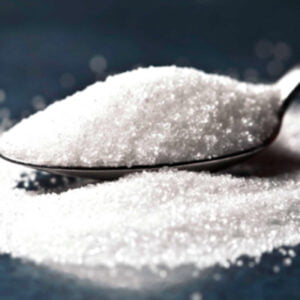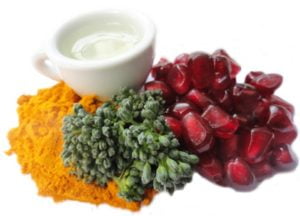Processed sugar damages our gut, our health and our planet
.

Excess processed sugar intake is harmful because it leads to inappropriately raised blood sugar levels due to their high glycaemic index (GI). These cause marked fluctuations in blood sugar levels because it is rapidly digested and absorbed, a process which triggers a large insulin response, then later suboptimal levels of glucose in the blood leading to fatigue, low mood and lack of motivation to exercise or eat well.
The addictive nature of sugary foods and drinks means they tend to be eaten in excess, increasing the glycaemic load of meals or snacks. Over eating high calorific foods particularly those rich in sugar increases the risk of abdominal obesity, high triglyceride, hyperglycaemia and diabetes. Sugar also triggers the production and storage of cholesterol and insulin like growth hormone that causes oxidative damage which damages our DNA. All this combines to significantly increasing the risk of premature ageing and the biggest killers of humans as we get older – cancer, heart disease, dementia and stroke. (Read more about how sugar damages our health).
.
Why sugar damages the gut health?

Another study found that diets that are high in sugar and processed foods led to an increased risk of inflammation inside the gut. Unfortunately, despite not having the same calorific content artificial sweeteners where found to do the same thing (read more). Both can lead to digestive issues such as food intolerances, bloating and wind as well as diseases such as cancer Crohn’s disease or inflammatory bowel syndrome. A chronic inflamed gut leads to poor integrity which causes nutrients to leak out of the body and toxins to leak in. These toxin trigger an inflammatory response in the body causing fatigue, malaise and collateral damage to many organise including the joints, pancreas, bones and brain causing diabetes, arthritis, osteoporosis, cognitive impairment and earlier dementia.
Poor gut bacterial diversity can also lead to cravings for further processed sugary foods, increasing obesity, high blood pressure and high cholesterol risk. Gut dysbiosis effects hormone imbalance which can increase hot flushes and menopausal symptoms which is why it’s a sensible idea to reduce process sugar during the menopause and adapted gut health enhancing lifestyle habits. Finally a poor gut can effect vitamin D absorption, which is why a good vitamin D supplement is given with a probiotic (healthy) bacteria in the same capsule (read more).
.
Why the sugar industry is damaging the planet?

Sugarcane farming has fuelled deforestation in some of the world’s most threatened ecosystems—including Brazil’s Atlantic Forest, which once covered a massive area but has been reduced to just 7% of its original size. It is estimated that 10% of soil is lost during harvest of beet sugar and 3-5% of soil in each sugar cane harvest. This has resulted in the clearing of natural habitats such as rain forests, coastal wetlands, and savannah. As well as losing oxygen producing plants, the manufacture of sugar leads to 0.42-0.82 kg of CO2 emissions for every 1kg of sugar produced – on par with car production
As well the smoke and heat produced by burning the cane, sugarcane production often pollutes freshwater ecosystems with silt and fertilizers washed from farms, as well as plant matter and chemical sludge from mills. Sugar production is a major threat to our fragile planet and the increasing demand means growers will need to cultivate almost 50% more land by 2050 to meet projected global sugarcane demand.
.
What can we do to reduce our processed sugar intake?

Try to stop eating sweets, mints, toffees or chocolate with added sugar. Refrain from adding sugar to tea or coffee. Avoid eating foods with added sugar such as sugary cereals. Sugar-free chocolate does exist, and this is actually full of healthy minerals and polyphenols. Avoid any sugar on an empty stomach such as first thing in the morning and eat slow-release carbs and fats instead – see how to make an idea breakfast bowl.
Sometimes it’s not so obvious where sugar has been added, especially as some of these foods may be advertised as healthy – reduced fast ready meals, salad dressings, pasta sources, yoghurt look a-likes or muesli cereals. Avoid savoury foods which have sugar added – it does not even make them taste nicer. So read the label of crisps and snacks. AS well as sugar it adds to the acrylamide content (a carcinogen). Some restaurants add sugar to their curries and stews – you can instruct the waiter to ask the chef to omit the sugar – more healthy recipe ideas.
In summary
- Avoid adding sugar to tea or coffee or to food during cooking
- Exercise and be physically active most days
- Fast for 13 hours overnight
- Don’t snack between meals
- Eat some polyphenol-rich foods with every meal
- Avoid processed foods, pre-packed ready meals or those labelled as ‘diet’
- Avoid sugary snacks
- Avoid sweet drinks such as cola or other fizzy drinks
- Avoid processed fruit juices with the pulp removed
- Avoid sugary breakfast cereals especially with added sugar or honey
- Change from white to wholemeal bread
- Use wild rice instead of white rice
- Eat salad and vegetables with white pasta to slow its GI
- Try quinoa instead of white rice or pasta
- For a treat, consider chocolate made without sugar
- Make cakes without sugar – use fruits such as dates or banana instead
- If you need to add something sweet use natural alternatives (e.g. Stevia)
- If you are craving something sweet restrict consumption to post meal times
- Eat the whole fruit
- Drink blended fruit and vegetable smoothies rather than juices
.
What can we do to reduce the negative impact of sugar
Slow release carbs: Instead of white bread pasta or rice try to eat more low GI foods, which by virtue of their slow digestion and absorption, produce gradual rises in blood sugar and insulin levels.


Look after you gut health: As well as reducing process sugar intake, aims to eat more friendly (probiotic) bacteria in foods such as kefir, kimchi and other fermented products. Increase prebiotic foods such as beans, mushrooms and fibre – see tips to improve gut health
Timing and food combinations: The timing and total content of the entire meal influences GI. Wholemeal bread has a slower absorption, as well as more vitamins and fibre than typical thin white, while wholemeal or fava bean enriched pasta, as well as al dente pasta, have a slower GI than overcooked white pasta [Tunco]. Processed sugars on an empty stomach, such as first thing in the morning, are particularly harmful as they are absorbed rapidly. Conversely, a small sweet dish after a healthy meal will have less of an impact as the stomach has plenty of other food to slow the gut down.
Intermittent fasting: In humans, a study involving women with breast cancer has revealed that overnight fasting for a period of 13 hours was associated with a lower risk of breast cancer recurrence, significantly better sleep and lower levels of glycated haemoglobin (a measure of average blood sugar levels over a period of months). Another small study with female volunteers investigated intermittent energy restriction (IER) in the form of a 2:5 diet (2 days of 65 % energy restriction per week). Researchers reported a 4.8% weight reduction and an 8% reduction in total body fat over one month. 55% of subjects demonstrated changes in lipid and glycogen synthesis and reduced markers of insulin resistance.
.
 References
References
Sugar and cancer – Professor Robert Thomas et al 2017 ICON
The biochemistry of exercise. Robert Thomas & Stacey Kenfield 2017 BJSM
Polyphenols and cancer. Robert Thomas et al BJMP 2015
The Giovannucci E. Diabetes and cancer: a consensus report. Diabetes Care 2010: 33(7): 1674.
Knekt P. Flavonoid intake and risk of chronic diseases. Am. J. Clin. Nutr. 2002;76:560
Kim Y. Polyphenols and glycemic control. Nutrients 2016 5;8(1)
Bi X. Spices in the management of diabetes. Food Chemistry. 2017. 217; 281.
Song Y. Dietary flavonoids, risk of T2D, insulin resistance and inflammation: J. Am. Coll. Nutr. 2005;24:376.
Sun Q. Urinary excretion of polyphenol metabolites is associated with a lower risk of T2D. J. Nutr. 2015
Thompson L. Relationship between polyphenol intake and blood glucose. Am J Clin Nut 1984,39 (5) 745
Tunco I. Polyphenol in Fava bean enriched pasta reduced GI. Functional Foods in Health & Dis. 2016;6(5) 291
Wedick N. Dietary flavonoid and risk of T2D in US men and women. Am.J.Clin.Nutr. 2012;95:925.

